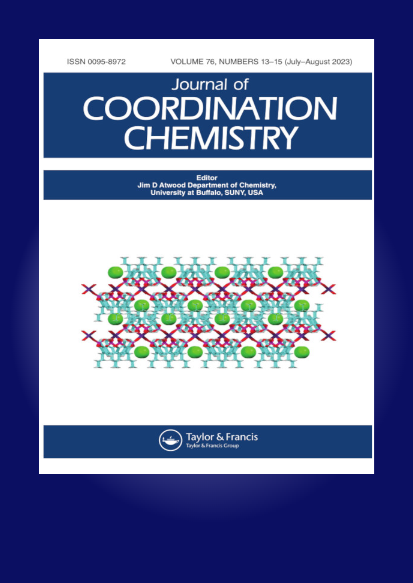N-Heterocyclic carbene complexes of Au(I), Ag(I), and Cu(I) as potential anticancer agents: a review
IF 2.2
4区 化学
Q3 CHEMISTRY, INORGANIC & NUCLEAR
引用次数: 0
Abstract
Abstract The discovery of cisplatin antitumor properties in 1969 encouraged researchers to design metal-based anticancer drugs. Recently, research on N-heterocyclic carbene-based metal complexes was successful due to their excellent anticancer potency and other biological activities, for example antitubercular, antiviral, anti-ulcerogenic, antifungal, antiglycation antimalarial, anti-inflammatory, antineuropathic, antihypertensive, antioxidant, anti-obesity, antibacterial, and analgesic activity. These complexes have excellent anticancer activities, even higher than cisplatin. Herein, we summarize the anticancer activities of N-heterocyclic carbene (NHC) based metal complexes of Au(I), Ag(I), and Cu(I). Further, the mechanism of action and the possible structure-activity relationships (SAR) are discussed. We hope this article will help researchers in designing highly potent Au(I), Ag(I), and Cu(I)-N-heterocyclic carbene complexes for the possible treatment of various types of cancer.金(I)、银(I)和铜(I)的n -杂环碳配合物作为潜在抗癌剂的研究进展
摘要1969年顺铂抗肿瘤特性的发现鼓励了研究人员设计基于金属的抗癌药物。近年来,N-杂环卡宾基金属配合物的研究取得了成功,因为它们具有优异的抗癌效力和其他生物活性,例如抗结核、抗病毒、抗溃疡、抗真菌、抗糖化、抗疟、抗炎、抗尿病、抗高血压、抗氧化、抗肥胖、抗菌和镇痛活性。这些复合物具有优异的抗癌活性,甚至高于顺铂。在此,我们总结了基于N-杂环卡宾(NHC)的Au(I)、Ag(Ⅰ)和Cu(Ⅰ)金属配合物的抗癌活性。并对其作用机理及可能的构效关系进行了讨论。我们希望这篇文章将有助于研究人员设计高效的Au(I)、Ag(Ⅰ)和Cu(Ⅰ)-N-杂环卡宾复合物,用于治疗各种类型的癌症。
本文章由计算机程序翻译,如有差异,请以英文原文为准。
求助全文
约1分钟内获得全文
求助全文
来源期刊

Journal of Coordination Chemistry
化学-无机化学与核化学
CiteScore
3.60
自引率
10.50%
发文量
171
审稿时长
3.2 months
期刊介绍:
The Journal of Coordination Chemistry publishes the results of original investigations of coordination complexes, loosely defined as the interactions of organic or inorganic ligands with metal centres. Original investigations may involve syntheses, structures, physical and chemical properties, kinetics and mechanisms of reactions, calculations and applications of coordination compounds. The applications may involve bioinorganic, organometallic, catalytic, solid state/materials, coordination chemistry of nanostructured surfaces and medicinal studies.
The Journal publishes original manuscripts, communications and reviews. Original manuscripts are expected to provide a clear contribution to the advance of coordination chemistry. Communications are short manuscripts with an urgency that requires rapid publication. Reviews are welcome in all areas of coordination chemistry and may focus on the metal, ligand or applications. Reviews of emerging areas of coordination chemistry should be developed fully from the basics, carefully relating the topic to the field in general. Reviews of well established subjects should collect developments from the literature and take a critical view of recent work.
 求助内容:
求助内容: 应助结果提醒方式:
应助结果提醒方式:


